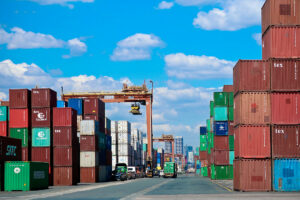Greenpeace calls for sachet ban

THE GOVERNMENT of Philippine President Ferdinand R. Marcos, Jr. should ban sachets and other single-use plastics, which remain the packaging of choice among the usual suspect corporations, according to Greenpeace.
“Given the continued prevalence of sachets in consumer goods… the Philippine government must treat this as an urgent issue and enact a national ban on sachets and other SUPs (single-use plastics),” Greenpeace said in a statement.
Filipinos use at least 164 million pieces of plastic sachets daily, amounting to 60 billion sachets discarded in the country annually, according to a United Nations Environment Programme report.
Greenpeace urged the government to include sachets in the list of banned products in Philippine waste management laws.
The environmental group also recommended Congress implement a law banning the outright use of single-use plastics at a national level.
The continuous use of sachets as the packaging of choice by companies perpetuates plastic pollution in the country, Greenpeace said.
“Corporations are driving the plastic crisis in the Philippines… with sachets comprising 52% of the country’s residual plastic waste and plastic production,” Greenpeace Philippines Zero Waste Campaigner Marian Frances Ledesma said in a statement.
Corporations must shy away from single-use plastics and transition to “wide-scale reuse and refill” containers in a bid to prevent further plastic pollution, she added.
“The ongoing struggle with sachet waste leads to sachets ending up in landfills, rivers, and beaches,” Greenpeace said, which damages ecosystems and existing wildlife.
Single-use plastics have also polluted water reservoirs, Mark T. Peñalver, executive director of Interfacing Development Interventions for Sustainability, said. “Sachets have found their way to our watersheds polluting our water sources and endangering wildlife and water consumers.”
Improper disposal of plastic waste, such as its burning, introduces toxic byproducts and pollutants into its immediate surroundings. — Kenneth Christiane L. Basilio




